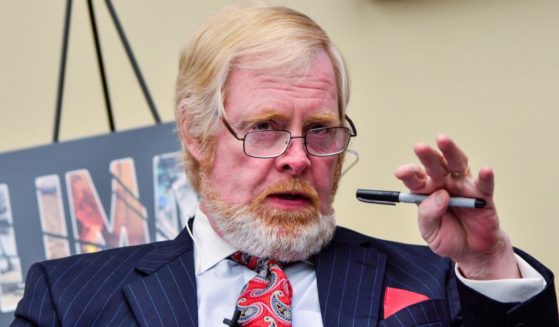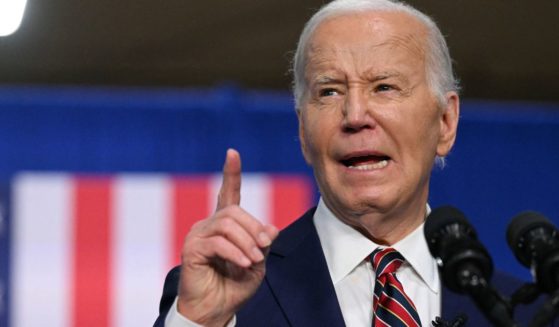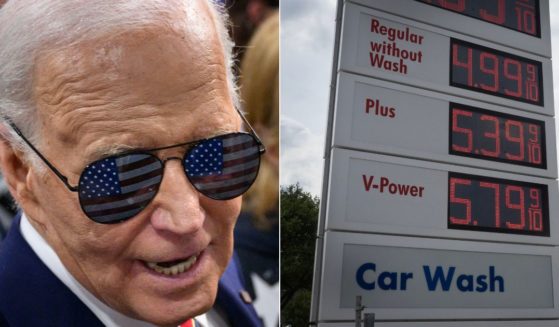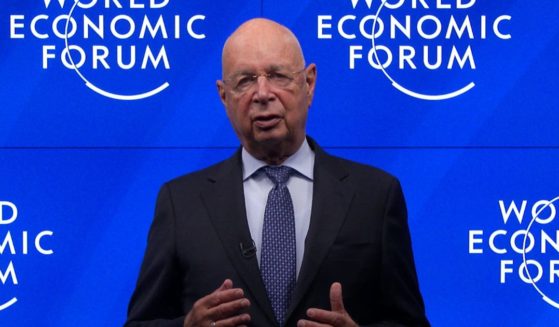Trump Posts 'Exonerating' Evidence Before Appearing in Court
Former President Donald Trump argued on Truth Social on Tuesday prior to his arraignment in Miami that crucial information was not presented to the federal grand jury in his case before the Justice Department’s decision to indict him.
“THE GRAND JURY WAS NEVER TOLD ABOUT THE PRESIDENTIAL RECORDS ACT OR THE CLINTON SOCKS CASE, BOTH EXONERATING!” Trump wrote.
The Republican presidential candidate also referenced the Clinton “socks case” while speaking in Columbus, Georgia, on Saturday.
“They also don’t mention the defining lawsuit that was brought against Bill Clinton,” he said, “and it was lost by the government — the famous socks case that says he can keep his documents. They don’t mention that.”
The “socks case” is the 2012 Judicial Watch, Inc. v. National Archives and Records Administration.
The case centered on 79 audio recordings Clinton had in his possession, including interviews he gave to historian Taylor Branch throughout his time in office, Reuters reported.
Branch published a book in 2009 based on the interviews titled, “The Clinton Tapes: Wrestling History with the President.”
In an interview with GQ magazine that year, Branch noted that Clinton “squirreled away the cassettes in his sock drawer.”
In 2010, Judicial Watch sued the National Archives to gain access to the tapes, which Clinton had designated as personal records and therefore did not turn over to the Archives in accordance with the Presidential Records Act.
U.S. District Court for the District of Columbia Judge Amy Berman Jackson noted in her opinion that the Judicial Watch complaint alleged that the tapes concerned a wide range of presidential matters.
These included such issues as the potential firing of then-CIA Director James Woolsey, foreign policy decisions such as military involvement in Haiti and the potential relaxation of the U.S. embargo of Cuba, telephone conversations with foreign leaders and a phone conversation Clinton had with Secretary of State Warren Christopher about the volatile situation in Bosnia.
Jackson ruled against Judicial Watch in the case, writing that even if she were inclined to agree with the conservative organization that Clinton should have turned the tapes over to the Archives, there was no remedy the court could grant.
“The [Presidential Records Act] does not confer any mandatory or even discretionary authority on the Archivist to classify records,” Jackson wrote. “Under the statute, this responsibility is left solely to the President.”
Judicial Watch president Tom Fitton told Reuters on Friday that Jackson’s opinion showed that Trump has the power to designate documents as personal records.
“The strong opinion from the court says the president has prerogatives that cannot be second-guessed,” he explained.
“These are not presidential records,” Fitton added. “These are personal records.”
However, Fitton did contradict Trump’s claim that the grand jury did not know about the “socks case” and its application to the Presidential Records Act. He said that he had been called before the grand jury in Washington, D.C., last winter to testify.
“Fitton said prosecutors seemed to use his four-hour grand jury session to sus out Trump’s potential defense,” Reuters reported.
Thirty-one counts in the DOJ’s indictment against Trump allege violations of the Espionage Act, 18 U.S. Code Section 793, having to do with the mishandling of documents pertaining to national security.
The indictment mentions a July 2021 interview with a book author in which Trump discussed a potential military operation that was apparently not undertaken.
Trump told the writer that what he was telling him was off the record and still classified. But Trump may have had another reason for not wanting the writer to include the information in his book, because he has also stated that he had declassified all the records in his possession.
GOP House Judiciary Chairman Rep. Jim Jordan of Ohio said on CNN Sunday that the 1988 Supreme Court case Department of the Navy v. Egan is the controlling precedent regarding handling classified material.
Trump “said he declassified this material. He can put it wherever he wants. He can handle it however he wants,” Jordan said.
“That’s the law. That’s the standard. And [special counsel] Jack Smith can do all this, 37 different counts, whatever he wants to do, but that doesn’t change the standard,” the congressman contended.
Truth and Accuracy
We are committed to truth and accuracy in all of our journalism. Read our editorial standards.












